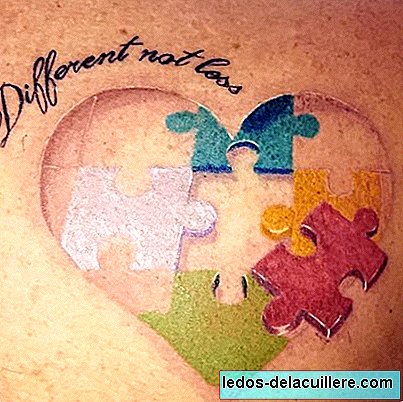
Until recently we had not heard of this virus, but due to the rapid expansion of Zika in Latin America, it is increasingly common to hear about it. We have learned that the WHO declared the global health emergency due to the growing cases of microcephaly (small head) in newborns linked to the Zika virus and also that although it seemed distant, cases have been detected in Spain of pregnant women who had traveled to a Latin American country and They imported the virus.
Logically, concerns arise around How Zika virus can affect pregnant women and newborns, and as for the latter, if breastfeeding while infected could spread the virus to the baby. WHO has already ruled out contagion through breast milk, but we also want to rescue the recommendation on Zika virus and contagion via breastfeeding from the e-lactation website, a reference site for breastfeeding professionals and mothers created by pediatrician José María Paricio.

The virus is considered a risk for pregnant women, since more than four thousand cases of microcephaly have been detected in Brazil in children whose mothers had been infected during pregnancy. But that may pose a risk in pregnancy, does not mean that it remains once the baby is born and since it has not been proven contagion through the mothers milk, breastfeeding is still recommended in all cases.
E-lactation considers it as Very low risk. The safest of the four levels established: Level 0 (very low risk), Level 1 (Low risk), Level 2 (High risk) and Level 3 (Very high risk). Therefore it is fully compatible No risk to breastfeeding and infant.
And adds:
Flavivirus that is transmitted mainly by the bite of mosquitoes of the Aedes genus from infected reservoirs (man and various animals).
Transmission by sex and the vertical route from mother to child (placental and perinatal) has been sporadically documented. The relationship of placental transmission with congenital microcephaly is being investigated. The possible transfusion transmission is also concerned.
Although Zika virus RNA has been found in breast milk, transmission of infection through breastfeeding has not been documented.
The virus causes a disease in 75% of asymptomatic cases. Only one in four people develops a generally benign clinic with few complications in adults and children, even infants, rarely requiring hospitalization. Two newborns who presented a positive test for the virus, presumably after perinatal transmission, remained one asymptomatic and the other with mild symptoms of doubtful attribution to the virus. Both, as well as their mothers, evolved favorably (Besnard, 2014).
Given the benefits of breastfeeding, expert committees, - Centers for Disease Control and Prevention (CDC) -, they recommend breastfeeding even in areas where Zika virus is present.












